Sometimes we all have those moments where we eat more than we should. So in this article, I will explain everything you need to know about overeating and what happens if you go over your calorie deficit.
If you go over your calorie deficit your body will stop burning fat as energy and start to use glucose from the food. Any excess calories will get stored in the form of glycogen in the muscles and the liver. All the rest of the calories will get stored as body fat.
But this doesn’t mean you will gain weight or lost the results that you’ve been working for so hard. It’s quite the opposite.

Can You Eat More Calories One Day And Less The Next?
You can eat more calories one day and eat less the next because it will help you improve your performance. Very low-calorie diets can, if used for the long-term, lead to poor physical and mental performance, therefore, eating more calories in one day can improve that.

Doing calorie deficit over a long period of time will have an impact on your physical activity and mental strength (source).
This means your energy can drop, your focus, your willpower, and your willingness to train.
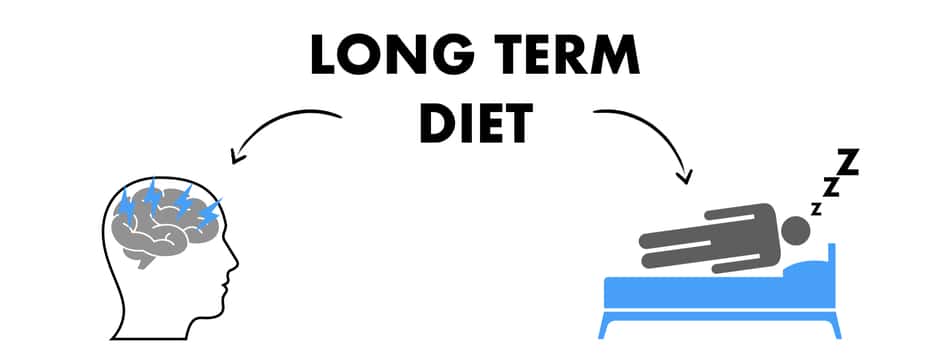
Which is hard if you’re juggling around with multiple projects and wearing many hats on at the same time. For busy people, energy is like currency.
Having the crazy amount of responsibilities, together with a calorie deficit, can “slow” things down.
That’s why having a day where you overeat will help you stay on your toes.
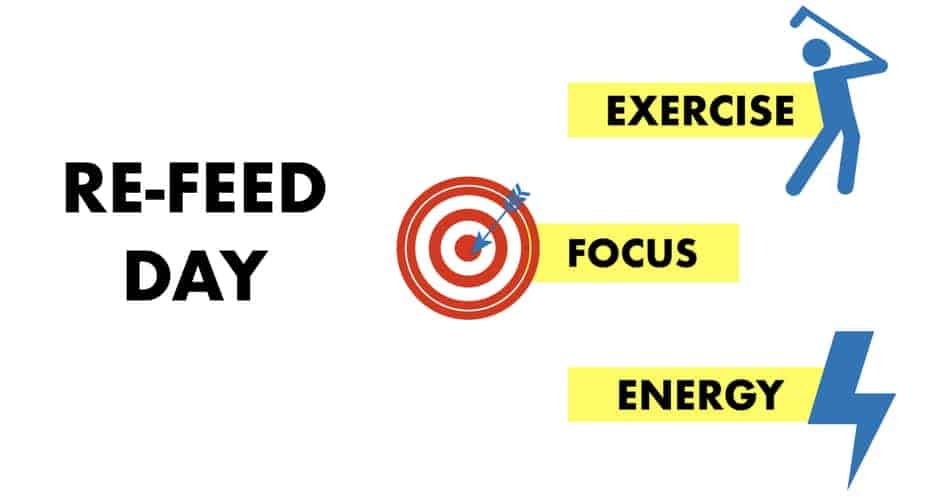
Can You Work Off Calories The Next Day?
You can work off calories the next day after overeating because this will help you get back on the caloric deficit. Working off calories the next day is used in calorie cycling where you alternate high and low levels of calorie intake which tricks the body and prevents plateau.
At some point, after prolonged calorie restriction, especially on very-low-calorie-diets or low-carb diets, the body will create a metabolic adaptation that can slow down the weight loss progress.
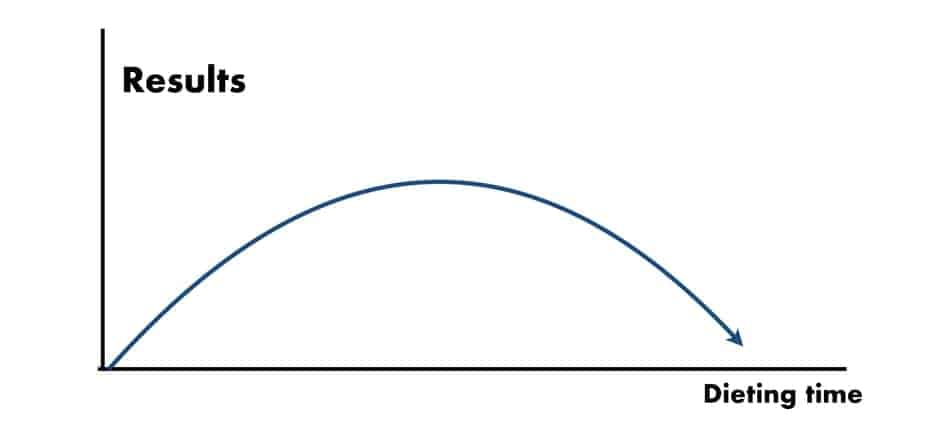
The calorie deficit can lower the metabolic rate (lower body weight means fewer calories burned), influence the sympathetic nervous system, influence thyroid hormone (decrease in T3 serum), changes in sex hormones (testosterone and estrogen), and more (source).
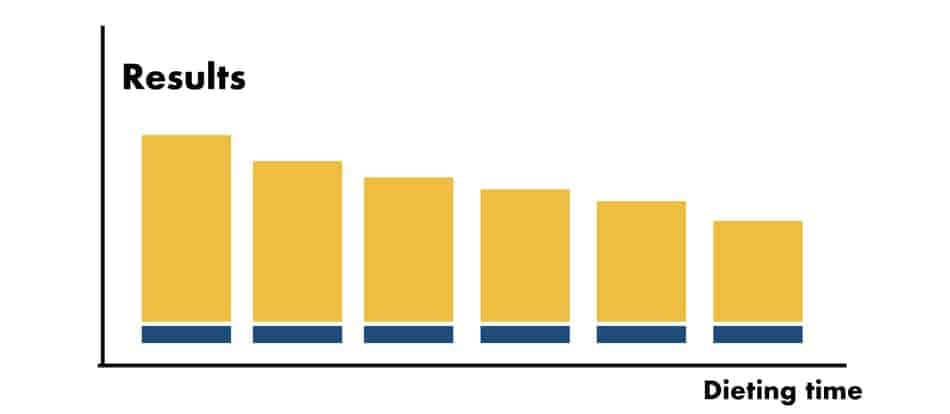
That’s when you do very low calories diets for a prolonged period of time.
So the weight plateau. Your body simply is too smart to let you keep losing weight.
Related article: Can You Get Abs Without A Calorie Deficit?
On the flip side, having infrequent big re-feed days, followed by working off days where you undereat, will trick the body and can continue with the results.
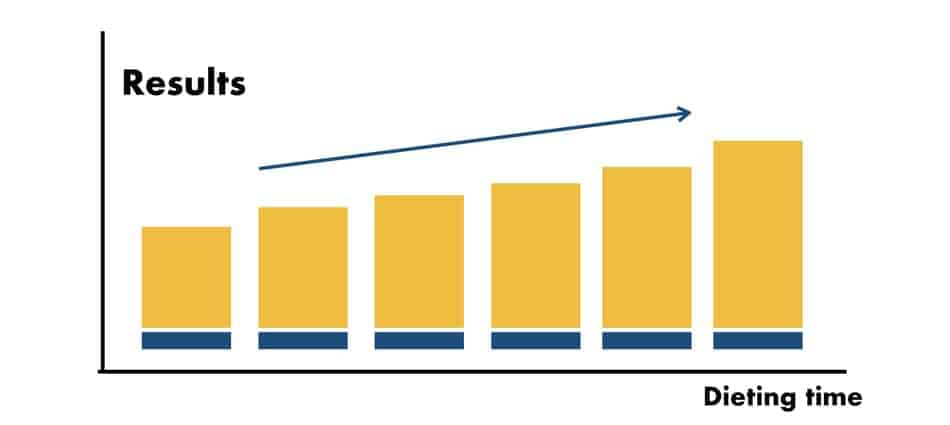
But this type of strategy works only for people with fantastic discipline, who can control themselves on the overeating days and sustain under calorie restriction for a long time.
Another great example of doing re-feeds or calorie cycling, without the need for excellent dietary discipline, is intermittent fasting.
Related article: Calorie Deficit For Beginners How It Works, Tips & Guides
If I Overeat One Day Should I Undereat The Next?
If you overeat on one day you can balance the calories by undereating the next day. This method is the modification of a fasting-mimicking diet, where you have several days of undereating with low energy intake alternated with several days of undereating eating.
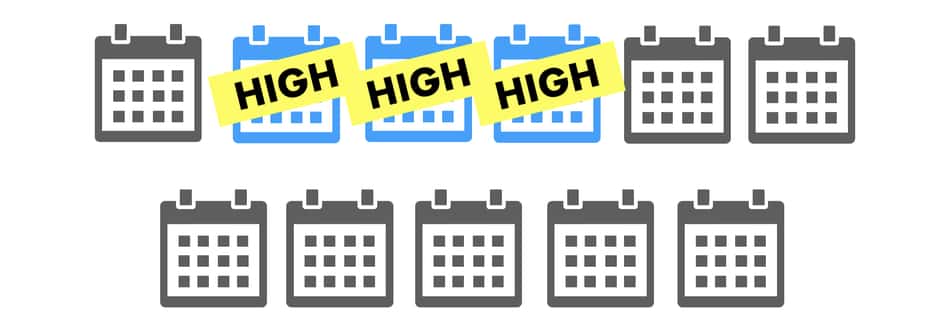
Overeating one day and undereating the following day can help you with lowering the total amount of calories consumed.
It’s a great way to get away with a cheat day where you can eat more.
Not only you won’t have any consequences but also you will feel better.
People usually feel guilty after cheat days. So having a low calorie day immediately after will help you stay focused.
This is exactly how some of the intermittent fasting protocols work.
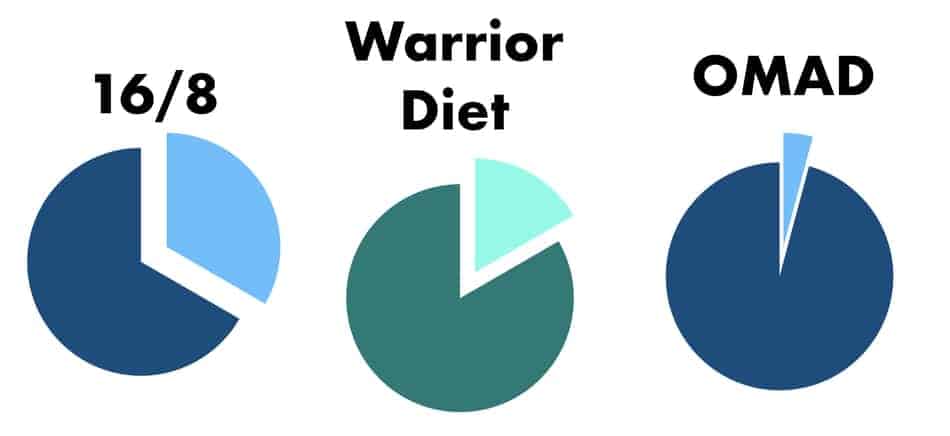
The most popular forms of fasting are daily fasts where you have an “eating window”.
But there are several other protocols where you simply eat more on some days, and less on others (source).
Alternate day fast is having an 12 hours eating window where you eat as normal.
And immediately after 12 hours you start a fast for 36-hours.

You can also have one day where you eat 3 meals in a day followed by one day with just one meal a day.
That’s why intermittent fasting has been so popular because it’s not one size fits all. You can literally do it in dozen ways and they all work.
What Happens If You Go Over Your Calories One Day?
If you go over your calories in one day it won’t create any major impact on your weight loss. In fact, having an infrequent overeating day after several days of undereating can help to boost your metabolic rate, balance your endocrine system, improves your mood, and helps with self-esteem.
The caloric deficit has an impact not only on physical energy but also on the mental health.
This means dieting for a long time can add up to your stress (source).
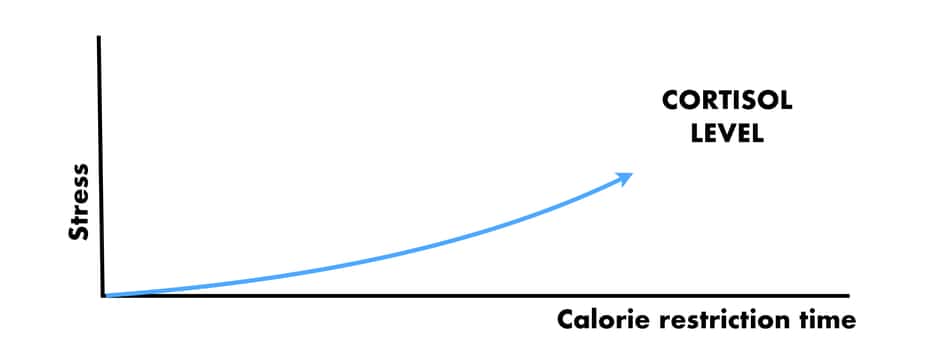
Let’s be honest, being in a caloric deficit for a long time is not for everyone.
Some people can eat only one meal a day and be just fine (even thrive).
But for others, a prolonged calorie deficit means a lot of stress.
And if you have already plenty of stress going on in your life, it can add up very quickly. This is called allostatic load.
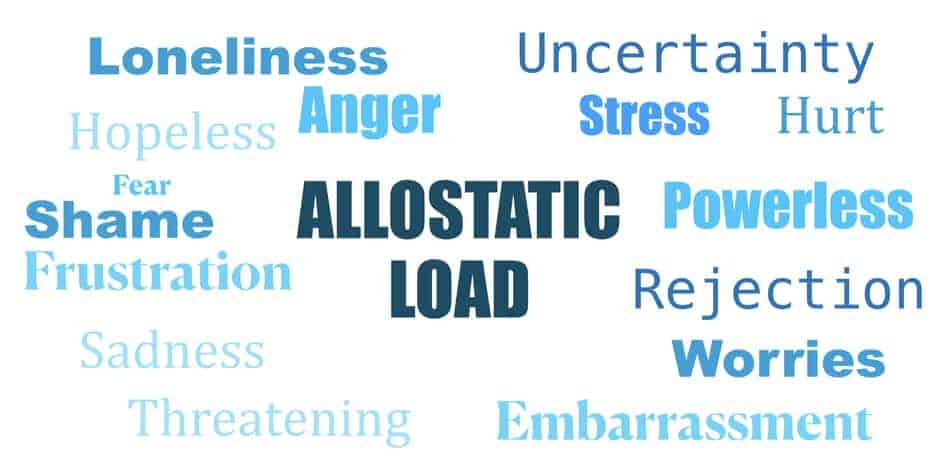
The more stress you experience recently, the more negative impact dieting will have on you.
That’s why some people can sustain long days (even months) on diet with almost zero stress. Where others crack under pressure in the first few days.
And it’s got nothing to do with the type of diet you’re on or with the food you eat.
It’s all about the accumulation of your current stress.
The more stress you have, the harder will be to lose weight. Simply because it will feel overwhelming. The caloric deficit also adds to the stress.
Plus, some people have a ritual of eating foo not only to satisfy hunger, but to reduce stress (source).
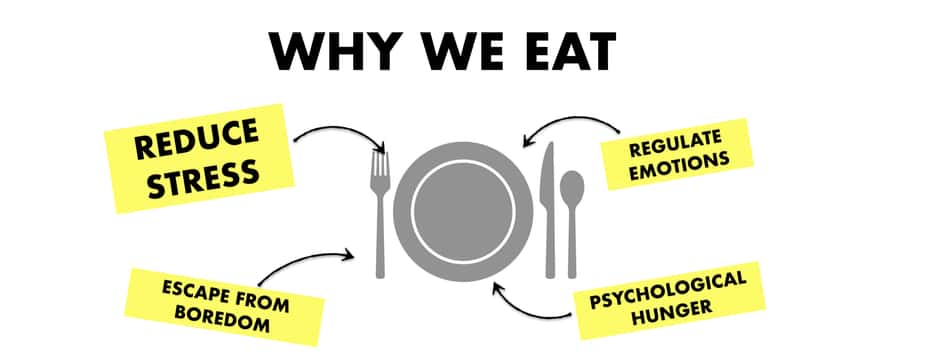
And now watch this.
If that food is taken away (because you’re on the diet) it will start to provoke unwanted thoughts, emotions, feelings, and finally behaviors.
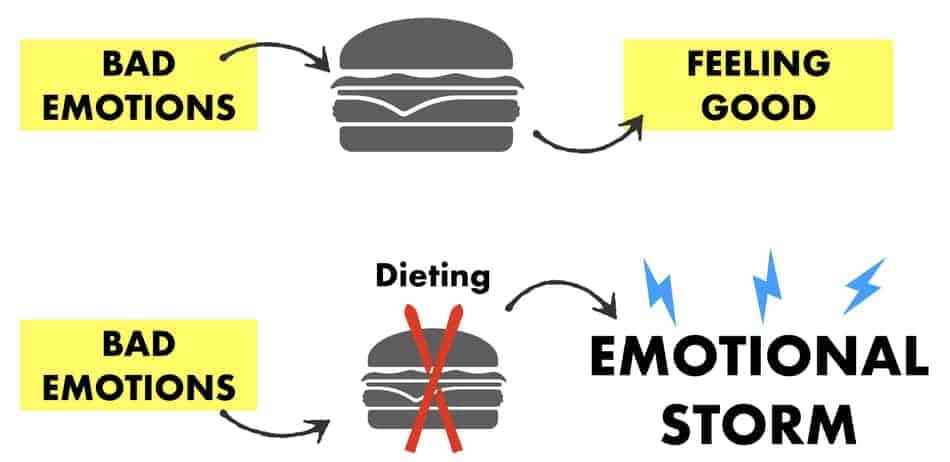
People who learn to cope with stress by eating will have a hard time (initially) with staying on a calorie deficit.
Because any negative situation immediately puts us in a stress mode and we look for ways to reduce stress. If the food is your go-to, then without the food what you gonna do? Stress even more.
That’s why having one day where you go over your calories will help you to relax a bit, at least in the short term. But in the long term, you should find some strategy to regulate your emotions with something else than food.
In Conclusion
Eating over the calorie limit happens to everyone and it shouldn’t be something to feel bad about. Undereating after overeating is a very effective method as long as it’s done without going overboard. Reducing your calories the day after cheat day will help you to decrease the total calories consumed, so you won’t get in trouble.
Related Questions
What To Do If You Eat Over Your Calories?
If you’ve eaten over your calories for one day you can make up for it the next day by eating less or doing intermittent fasting. Eating more on one day followed by eating less the next day can help you balance the excess calories and help you stay more consistent with a calorie deficit.
Is It Ok To Go Over Your Calorie Limit Once A Week?
It is ok to go over your calorie limit once a week because it can help you sustain under the caloric deficit in the long term. Calorie restriction over a long period of time can create an extra amount of stress and lower compliance, therefore going over your calorie can help with your results.
Do You Have To Eat The Same Amount Of Calories Everyday?
You don’t have to eat the same amount of calories every day because there are many different ways to drive caloric deficit. Some of the most popular ways are calorie cycling of alternate-day fasting where you eat more on some days, and some days you eat less.
